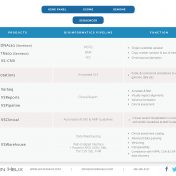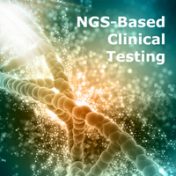Thank you to everyone who attended Using Golden Helix CancerKB to Accelerate NGS Cancer Testing! I had a great time showing off Golden Helix CancerKB and how it can enhance NGS analysis in cancer, I certainly hope you enjoyed it! If you were unable to make the live session, we have added the on-demand recording to our site, or we… Read more »
As clinical genetic tests have been adopted as a critical enabler of precision medicine, the number of tests offered by clinical labs and the volume of tested patients has grown by orders of magnitude in the past five years. The Gene Testing Registry, managed by the NIH, documented a rise from 13,000 to 60,000 tests offered in the US market… Read more »
Next-Gen Sequencing promised to be the ultimate paradigm when it comes to genetic research and clinical testing since it contains the complete genetic information. When it comes to the current reality in testing labs, there are still a number of additional testing paradigms used in an analysis, specifically, copy number variations. Among these, labs still widely use Chromosomal Microarrays and… Read more »
We don’t just like hearing what our clients are up to … we love bragging about what they’re doing to the world as well! This week we’re showcasing Dr. Stanley Nelson, and his team at UCLA Health, who used next-generation sequencing and our VarSeq software to help diagnose a child’s long running medical mystery. Audrey Lapidus knew there was something… Read more »
This generation of scientists, clinicians and bioinformaticians have already elevated the standards for diagnosis, prediction and care, ultimately improving patient outcome for millions of people by leveraging genomic information. This trend is only going to continue. Next-gen sequencing has made its way into the clinic. Golden Helix supports the adoption of Precision Medicine by building products, such as our VarSeq… Read more »
Any validated bioinformatics pipeline must be continuously monitored. Quality management in clinical testing labs ensures that any divergence from predefined quality metrics during the analysis of clinical samples is investigated. For example: There is an insufficient number of sequence reads that passed the predefined base quality score threshold The number of variants identified in a data set may deviate substantially… Read more »
Getting the NGS wet bench process right is not a small undertaking. Targeted NGS assays such as multigene panels or exome sequencing allow for the targeted analysis of genomic regions that are of particular interest. For every sample type, e.g. blood, formalin-fixed paraffin-embedded specimens, saliva etc, there must be a detailed protocol in place outlining how each sample type is going… Read more »
We have come a long way since Next-Generation Sequencing (NGS) evolved as a set of technologies in the 1970s. The higher throughput and rapid reduction of costs associated with NGS have lead to the accelerated adoption of clinical testing that we are experiencing today. Currently, it is applied to analyze inherited diseases, tumors, hematologic malignancies and infectious diseases. It is… Read more »
The adoption of genetic services is key to our ability to provide personalized medicine in the future. The goal is to better diagnose diseases, predict their outcome, and choose the best possible care option for a patient. We still have a long way to go to achieve this goal. While there is agreement about the ultimate goal, there is still… Read more »








